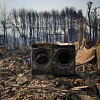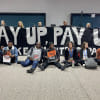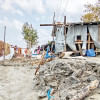The renewable energy sector needs a push

As the world accelerates its shift to renewable energy to cut fossil fuel use, it's disheartening to see the limited growth of Bangladesh's renewable energy sector. Reportedly, despite our significant solar potential, a lack of political will and inadequate policy support have stalled its development. According to the Sustainable and Renewable Energy Development Authority (SREDA), as of 2024, Bangladesh's total solar energy output stands at only 1,084.55 MW, which is very insignificant. Bangladesh also ranks lowest in renewable energy generation relative to total power capacity among South Asian countries, as per a 2023 study. Insufficient investment and flawed policies of the previous Awami League regime further hindered the sector's progress.
In 2012, the Awami League government introduced a policy requiring new buildings to install solar panels to obtain utility connections. However, this initiative fell short as many people opted for low-quality solar installations just to meet the requirement, leaving numerous rooftop systems in Dhaka unused. Experts point to policy limitations like the 70 percent capacity cap on renewable energy converters and an underdeveloped net metering policy that discouraged effective solar panel use. Moreover, high import duties on solar equipment further deterred rooftop installations. Consequently, Bangladesh missed its previous targets to generate five percent of its electricity from renewables by 2015 and 10 percent by 2020.
There were also serious inconsistencies in the previous government's energy policies. For example, while the Mujib Climate Prosperity Plan (MCPP) set an ambitious goal of 40 percent renewable energy in our total energy production by 2041, the Integrated Energy and Power Master Plan (IEPMP) 2023 reduced this goal to just 8.8 percent—revealing a lack of alignment in energy planning.
Clearly, Bangladesh lags significantly in solar energy development and has much to learn from other comparable countries. Vietnam, for example, provides an inspiring example, as it produces 9,300 MW of rooftop solar energy out of a total 16,500 MW solar capacity. The country's solar production rivals Bangladesh's entire power generation capacity. Therefore, going ahead, Bangladesh can take cues from the experiences of countries like Vietnam and prioritise the growth of the renewable energy sector.
Our power sector is already in a very challenging state. Consistent gas shortages have left many power plants idle, and the dollar crisis has made importing expensive LNG harder for the government. With few viable alternatives, we must look to renewable sources to meet our future energy needs. We hope the interim government gives urgent attention to this sector, and moves away from the flawed and ineffective energy policies of the past.


 For all latest news, follow The Daily Star's Google News channel.
For all latest news, follow The Daily Star's Google News channel. 











Comments